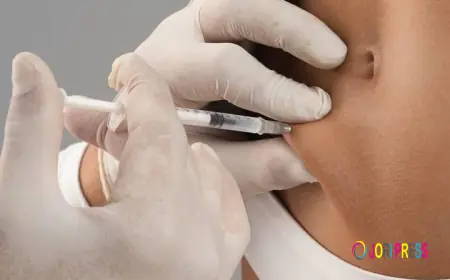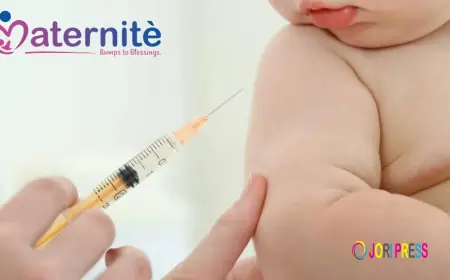Natural Remedies vs. Medical Interventions: Choosing the Right Depression Treatment
Discover effective depression treatment options including therapy, medication, and holistic care to improve mental health and well-being.

Depression is a condition that affects millions of people worldwide, and finding the right path to healing is often overwhelming. With so many available options, from holistic approaches to clinical methods, individuals often ask themselves: Should I rely on natural remedies, or is professional medical help necessary? Understanding both perspectives can empower people to make informed choices about the depression treatment that best suits their lifestyle, health needs, and long-term goals.
Understanding Depression Beyond the Surface
Depression is more than sadness. It is a complex condition that affects emotions, thoughts, behaviors, and even physical health. Symptoms may include:
-
Persistent feelings of sadness or emptiness
-
Loss of interest in activities once enjoyed
-
Difficulty concentrating
-
Sleep disturbances
-
Appetite changes
-
Feelings of hopelessness or worthlessness
Recognizing these symptoms early helps in deciding whether natural remedies, medical interventions, or a combination of both might be the most effective depression treatment.
Natural Remedies for Depression
Many people prefer starting with natural remedies because they often carry fewer side effects, are more holistic in nature, and can support overall well-being.
1. Exercise and Movement
Physical activity has been proven to release endorphins, which act as natural mood lifters. Regular exercise such as walking, yoga, swimming, or cycling helps reduce symptoms of depression. Even just 20 minutes of daily movement can make a noticeable difference.
2. Nutrition and Diet
Food plays a significant role in mental health. Diets rich in omega-3 fatty acids (like salmon, flaxseed, and walnuts), leafy greens, whole grains, and lean proteins may improve mood regulation. Limiting processed foods, refined sugars, and excessive caffeine also supports mental clarity.
3. Herbal Supplements
Some herbs have been studied for their potential impact on mood:
-
St. John’s Wort: Often used for mild depression (though it can interact with medications).
-
Ashwagandha: Known for reducing stress and improving resilience.
-
Turmeric (curcumin): Has anti-inflammatory properties that may benefit mood.
While these supplements can be effective for some, it’s crucial to consult a healthcare professional before starting, especially if already taking medications.
4. Meditation and Mindfulness
Practices such as deep breathing, meditation, and mindfulness-based stress reduction can help calm racing thoughts and reduce anxiety. Mindfulness allows individuals to stay present, reducing rumination and improving emotional regulation.
5. Sleep Hygiene
Poor sleep can worsen depression symptoms. Establishing a consistent sleep routine, limiting screen time before bed, and creating a relaxing bedtime environment are natural yet powerful tools for mental well-being.
6. Social Connection
Isolation often worsens depression. Spending time with family, friends, or support groups provides a sense of belonging and reduces loneliness.
Medical Interventions for Depression
While natural remedies can be effective for mild symptoms, many individuals require medical interventions for moderate to severe depression. These approaches are evidence-based and often bring relief when symptoms interfere with daily life.
1. Psychotherapy
Therapies such as Cognitive Behavioral Therapy (CBT), Dialectical Behavior Therapy (DBT), and interpersonal therapy help individuals identify and reframe negative thought patterns. Therapy equips patients with coping strategies and builds resilience over time.
2. Medications
Antidepressants such as SSRIs, SNRIs, and tricyclic antidepressants are commonly prescribed. They work by balancing brain chemicals like serotonin and norepinephrine. While effective, they may take several weeks to show results and can have side effects, which need careful monitoring by a healthcare professional.
3. Brain Stimulation Therapies
For treatment-resistant depression, options like Electroconvulsive Therapy (ECT), Transcranial Magnetic Stimulation (TMS), and Vagus Nerve Stimulation (VNS) may be recommended. These methods target brain activity to alleviate symptoms.
4. Combination Therapy
Often, the best outcomes come from combining psychotherapy with medications. This holistic approach tackles both the biological and psychological aspects of depression.
Comparing Natural Remedies and Medical Interventions
When deciding between natural remedies and medical approaches for depression treatment, consider the following factors:
-
Severity of Symptoms: Mild depression may improve with lifestyle changes and natural remedies. Severe depression often requires medical attention.
-
Safety Concerns: Some herbal remedies interact with medications, while medical treatments may carry side effects.
-
Speed of Relief: Medications may work faster, whereas natural remedies often require consistency over time.
-
Personal Beliefs and Preferences: Some individuals prefer holistic care, while others feel more secure with structured medical treatment.
The Role of an Integrated Approach
Instead of choosing one path exclusively, many experts recommend blending natural remedies with medical interventions. For example, combining therapy with mindfulness or adding nutritional changes alongside antidepressants can create a comprehensive healing plan.
This integrative model not only reduces symptoms but also supports long-term wellness. The ultimate goal is to find the balance that empowers individuals to live fuller, healthier lives.
Practical Steps to Decide on the Right Depression Treatment
-
Assess Your Symptoms – Keep track of mood changes, sleep quality, and energy levels.
-
Consult a Professional – A healthcare provider can evaluate the severity of depression and suggest appropriate treatments.
-
Start Small – If symptoms are mild, begin with lifestyle changes such as exercise and improved sleep.
-
Consider Support Networks – Engage family, friends, or support groups for encouragement.
-
Stay Open to Adjustments – Treatment plans often require modifications as recovery progresses.
FAQs about Depression Treatment
Q1. Can natural remedies completely replace medical depression treatment?
Natural remedies can help with mild depression but are rarely sufficient for severe cases. Medical interventions may be necessary when symptoms interfere with daily life.
Q2. How long does it take for antidepressants to work?
Most antidepressants take 4–6 weeks before significant improvements are noticeable. Some individuals may feel relief earlier, but consistency is key.
Q3. Are there risks with herbal supplements for depression?
Yes, certain herbs can interact with prescription medications and cause side effects. Always consult a healthcare professional before using them.
Q4. Is exercise really as effective as medication for depression?
For some individuals with mild depression, regular exercise can be as effective as medication. However, severe depression usually requires professional treatment.
Q5. Can I combine therapy, medication, and natural remedies?
Yes, many people benefit from an integrated approach. Combining methods often leads to better and longer-lasting outcomes.
What's Your Reaction?
 Like
0
Like
0
 Dislike
0
Dislike
0
 Love
0
Love
0
 Funny
0
Funny
0
 Angry
0
Angry
0
 Sad
0
Sad
0
 Wow
0
Wow
0

















































